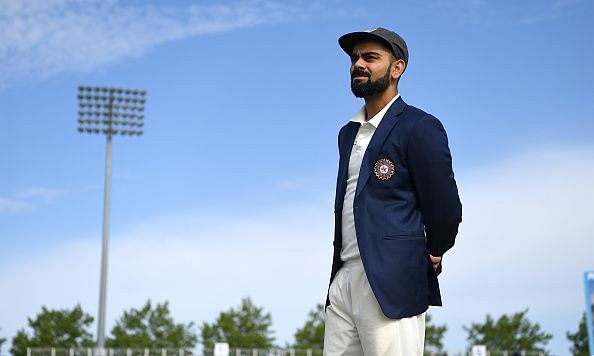
Can Kohli be called a greater batsman than Bradman?
Sir Donald Bradman is on top of most people's greatest batsman of all time list. He has an incredible career batting average of 99.94 and no batsman, in modern or olden times, has an average even approaching that phenomenal number. Based on his batting average, it is generally accepted today that Bradman is the greatest batsman of all time.
But, to simply declare a batsman the greatest solely on the basis of one statistic, without factoring in other variables, is a flawed approach guaranteed to lead to the wrong conclusion. So, let's examine Bradman's average in context and compare it to a modern time great Virat Kohli.

In his career, Don Bradman played 52 Tests over a period of 20 years. His batting average of 99.94 per dismissal suggests that he dominated his opponents. However, he played most of his international cricket against just one opponent - England. In fact, he played against England in 37 of his 52 Test matches. In addition, he played a handful of games against South Africa and India. Moreover, he played in only about 10 grounds throughout the span of his international career.

Virat Kohli, on the other hand, concurrently plays Test and ODI cricket. He plays these two formats of cricket (three if you consider T20Is) around the year and in different countries, against different opponents. In about 10 years, he has played 70 Tests and 211 ODIs. If he continues playing for another five or six years, he'll have played a staggering 400-500 international matches. Despite so much cricket, he averages close to 55 in Tests and almost 60 in ODIs.
So, on the surface,when you compare Bradman's batting average with Kohli's, the conclusion seems like a no-brainer. How can you say that a 99.94 average is not better than a 55 and/or a 60 average? But when you consider additional variables that Kohli has to deal with that Bradman didn't have to, then the picture becomes less muddy.
Kohli has to routinely play against a variety of opposition - as many as 8 different opponents. He plays significantly more international games per year- year after year. The impact of the physical and mental toll of playing so much continuous cricket at the highest level is enormous. Moreover, he plays cricket in almost equal proportion at home and on the road.
Playing on the road is one of the most challenging aspects of playing international cricket. Home-teams routinely customize their pitches to thwart opposing batsmen. That adversely impacts the opposing teams' batting average. Also, the skill required to face high quality spin bowlers and pacers on different pitches around the world is another invaluable variable that cannot be gauged simply by looking at the raw batting average.
Besides, Kohli is committed to concurrently playing three different formats of international cricket- Test matches, ODIs and T20s. In addition to all of this, a modern-day batsman like Kohli plays high pressure ICC tournaments that didn't exist during Bradman's era.
So, when greatness of a batsman is measured in the context of all these additional burdens that a modern-day batsman carries, all of a sudden, one's appreciation of Kohli's 55 Test average and 60 ODI average is enhanced many folds. The unfairness of comparing just raw averages of Bradman and Kohli becomes apparent.
Kohli's incredible mental and physical stamina, his batting success in challenging environments, his longevity, and ability to participate in different formats of international cricket at the same time make his feats as a batsman much greater than Bradman's. For that, Kohli, today, can already be deemed a greater batsman than Donald Bradman.